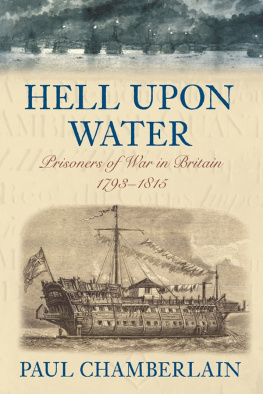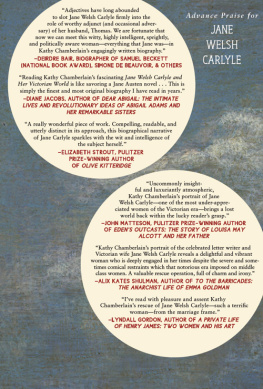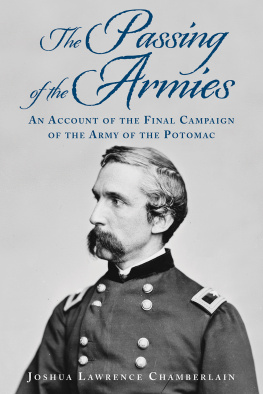Hell Upon Water:
Prisoners of War in Britain
17931815
HELL UPON
WATER
PRISONERS OF WAR IN BRITAIN
17931815
by
PAUL CHAMBERLAIN

For Melissa,
For her patience and tolerance of a history enthusiast
This edition first published in 2008 by
The History Press
The Mill, Brimscombe Port
Stroud, Gloucestershire, GL5 2QG
www.thehistorypress.co.uk
This ebook edition first published in 2016
All rights reserved
Paul Chamberlain 2008
The right of Paul Chamberlain to be identified as the Author
of this work has been asserted in accordance with the
Copyright, Designs and Patents Act 1988.
This ebook is copyright material and must not be copied, reproduced, transferred, distributed, leased, licensed or publicly performed or used in any way except as specifically permitted in writing by the publishers, as allowed under the terms and conditions under which it was purchased or as strictly permitted by applicable copyright law. Any unauthorised distribution or use of this text may be a direct infringement of the authors and publishersrights, and those responsible may be liable in law accordingly.
EPUB ISBN 978 0 7509 8053 1
eBook converted by Geethik Technologies
Contents
Acknowledgements
A visit to Portchester castle in the 1980s drew my attention to some French names carved into the stonework. I had heard tales of French prisoners being held there during the Napoleonic Wars, but had not realised the significance of this site in the story of that conflict. After twenty-three years of immersing myself in the subject, with conference papers, talks to local groups, magazine and journal articles, and involvement in the Norman Cross Eagle Appeal along the way, here is the result of that research.
One of the pleasures of such a study is that many individuals and organisations would contact me for information, but invariably tell of a story they knew relating to just some of the many thousands of prisoners of war who left their mark on Britain two hundred years ago. These snippets of information made me realise that the prisoners of many nationalities who were brought to Britain have left an indelible mark on many local communities.
Many individuals have provided me with a piece of the story and I thank them for their time and consideration. These include Paul Bennett, David and Janet Bromley, Sue Brunt, Stella Child, Michael Crumplin, Ian Fletcher, Peter Fry, John Grehan, Kenneth Hillier, Dave Hollins, the late Martin Howe, Peter Lee, Olive Main, J. David Markham, Sheila Millard, Keith Oliver, Ben Robinson, Karen Selby and Helen S. Smith.
Of the many institutions and organisations which have answered my queries and made information readily available I mention first and foremost the staff at the National Archives, Kew, where much of the research for this book was performed. However, I am grateful for the help provided by the staff at the British Library, Bank of England Museum, Bishops Waltham Society, Dartmoor Prison, Dartmouth Museum, Gosport Borough Council, Museum of Transport Glasgow, Guildhall Museum Rochester, Hampshire Museums Service Winchester, Liverpool Museum and Art Gallery, National Army Museum London, National Maritime Museum Greenwich, Oxfordshire County Museum, Perth Museum and Art Gallery, City Museum Peterborough, Petersfield Historical Society, Portchester Castle, Central Library Portsmouth, Portsmouth Museums Service, Plymouth Museum and Art Gallery, Royal Marines Museum Southsea, Royal Naval Museum Portsmouth, Science Museum Kensington, Tiverton Museum, The National Library of Wales and Wardown Park Museum Luton.
Thanks should also go to Jamie Wilson at The History Press, who patiently waited for this book from an initial idea some years ago through to the miracle of actually getting into print, and to Clare Jackson for guiding me through the book submission process.
Last but not least, thanks should also go to my patient and very tolerant wife Melissa who has put up with my endless disappearances to Kew or to churchyards (often with her in tow) to photograph yet another old gravestone.
Paul Chamberlain
Abbreviations used in chapter notes:
BL | British Library, London. |
BoE | Bank of England Archive Section |
NAM | National Army Museum, London. |
NMM | National Maritime Museum, Greenwich. |
TNA:PRO | The National Archives (Public Record Office), Kew. |
CHAPTER 1
Marching Into Captivity
The eighteenth century was period of frequent conflict as the European powers jostled for continental supremacy, at the same time expanding their overseas empires, while attempting to limit the imperial ambitions of their rivals. The century saw France, Spain and Holland arrayed as frequent enemies of Great Britain. The War of the Spanish Succession (17011714), the War of the Austrian Succession (17401748), the Seven Years War (17561763) and the American Revolutionary War on the side of the American colonists were all clashes in which these nations fought against Britain. Each war was characterized by conflict on land and sea across the globe, and resulted in many prisoners of war arriving in Britain. As the century progressed, armies and navies became larger, and consequently the numbers of prisoners taken became greater.
The extent of the conflict during the American Revolution prompted an attempt at regulating the business of repatriating prisoners of war. Exchange of prisoners had always been erratic, but in 1780 a treaty was agreed between Britain and France stating that vigorous attempts would be made to exchange all prisoners of war as speedily as possible after capture, man for man, rank for rank. If there were no prisoners of equal rank to exchange, then the numbers would be made up of a proportion of lesser ranks, or a cash equivalent could be substituted.
This treaty was regarded as the gentlemanly way to conduct prisoner of war affairs, but it only worked when there were gentlemen on both sides who could reach an agreement. However, 1789 saw events in France that changed the situation. The French Revolution removed French gentlemen from the scene, either by guillotining them or forcing them to flee for their lives. While these momentous events were changing the social and political climate in that country, they were also to change the conduct of war.
Prior to 1789, European conflict was conducted in a civilized manner between monarchs who, while pitting their relatively small but professional armies against each other, respected their mutual positions as heads of state. The French Revolution, under the banner libert, galit, fraternit, overturned the idea of royal and aristocratic privilege. This had two immediate effects. First, the French were infused with a national fervour to export their revolutionary principles to the rest of Europe. Second, this forced the nations of Europe to co-operate against a common foe. War was about to be waged on a scale never seen before.
The Revolutionary War began in 1792 with the French demonstrating the effectiveness of a leve en masse by fighting off an Austro-Prussian alliance, at the same time as the abolition of the monarchy by the National Convention in Paris. 1793 began dramatically with the execution of Louis XVI in January; the following month resulting in France declaring war upon Britain, Spain and the United Provinces (Holland). While countries such as Spain and Holland later found themselves allied to France, Great Britain remained an implacable foe until the short-lived peace resulting from the Treaty of Amiens in 1801.
Next page















